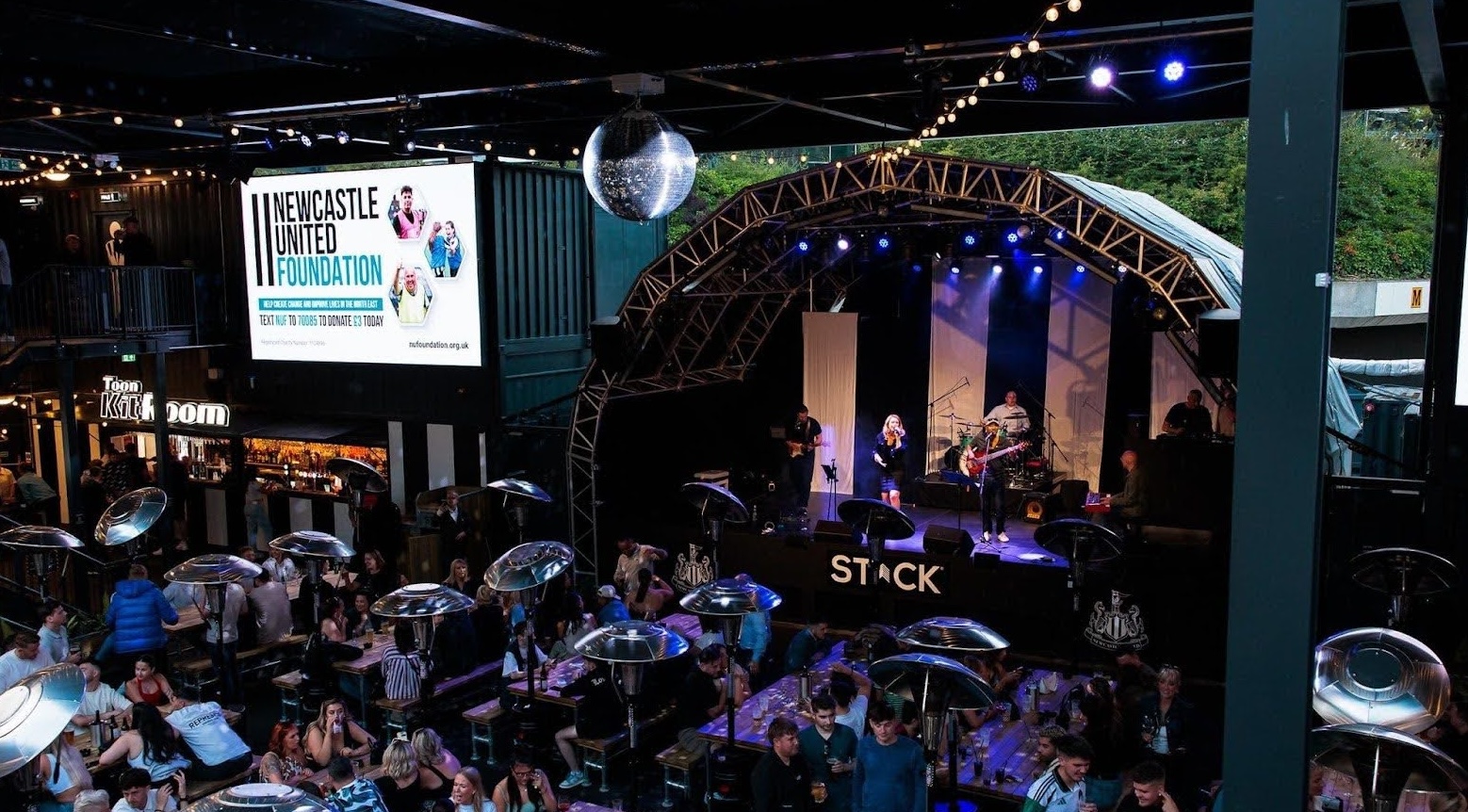
30 Years of Britpop – Jake Shillingford’s Story
This year marks the 30th anniversary of one of Britain’s most culturally significant music eras - Britpop, where frontman of My Life Story, Jake Shillingford, shares his insights from the period as he gears up to release new music.
This was kickstarted by Suede’s eponymous debut album, igniting a musical explosion, that would reverberate throughout the UK.
Over the next four years, the scene was dominated by Britpop’s big four: Suede, Pulp, Blur and Oasis, whose releases in that period instantly became stonewall classics and left an undeniable mark on the music landscape.
Whilst the era itself was relatively short-lived, the sounds that emerged from it have proven timeless, characterised by witty lyricism, catchy melodies and jangly guitars.
Marking the significance that era still has on the modern-day music scene, Blur effortlessly sold out two massive headline Wembley shows, and Pulp has reunited for their first UK tour in 10 years, where the continued adoration for these artists underscores the lasting impact of the Britpop era.
Britpop was a musical movement rooted in the heart of Britain, which emerged as a vibrant force, shaping not only the UK music scene but also leaving an impact on the country's fashion, culture and media.
The sudden surge of popularity in the American Grunge scene and the dourness of the songs left music mavens put out by the tunes, and the emergence of Britpop was the antidote to this sound.
This was personified when Blur’s frontman Damon Albarn commented to NME’s John Harris, “If punk was about getting rid of hippies, then I’m getting rid of grunge.”
While the term Britpop was sometimes seen as a marketing tool of the press, it was still a significant musical movement which engaged fans into the new sound of music now that American Grunge was edging out of the charts.
Jake Shillingford is the lead singer and songwriter for the band My Life Story (MLS), which formed in 1985 but rose to significant popularity during the Britpop era.
The epic pop pioneers brought a unique and recognisable Baroque sound to the industry, which was achieved by incorporating a string orchestra and brass section to back their tunes, which secured the group six top 40 singles and a top 40 album.
Shillingford’s evocative vocals and energetic and charismatic live performances ensured that they supported Pulp and Blur, as well as being one of the only groups to headline a show over Oasis as he consistently donned his eye-catching sharp suits.
GigPig spoke to the frontman of MLS, and asked him how Britpop and the band sound has stood the test of time, Shillingford said: “There were a lot of creative and interesting bands that were putting out music well before the term was coined as Britpop, as it wasn't called that when we were making records.
“I think that Britpop now, particularly overseas, is used more, to sum up British music in general, so I think a lot of other artists like myself, find the term Britpop means something different to so many people.
“The records of the era have a distinguishing sound as a lot of the music was made in the same studios, and we all used similar producers, so there is a sound, and that’s important for the cohesiveness of a scene.
“But it did feel like we were experiencing two genres happening at the same time, with the dance and acid house scenes, and also the grunge coming out of America.
“Those two scenes were colliding on Top of the Pops, and it was such a dull watch for so many people of my age, I think there were a lot of people, in their early 20s who had the passion and the enthusiasm to want to make music.
“We were all probably sitting around in our front room and thinking that this is not really acceptable, and we wanted to have our say ourselves.
“In terms of MLS, it is a hard one to answer when you're the creator of the music yourself, but from my point of view, MLS had a strong image in the Britpop era with a very large orchestral band, and we're well known for being a great live band.

“At the core of it, I am trying to make sure that I'm the best songwriter I can be, and if you look at any bands that continue to release records and perform for as long as MLS have, you've got to look at the heart of the songwriting. Focusing on what drives me and subject matters that interest me.
“Even when the song is just an idea, I focus on what it would sound like live, and then I write it, imagining how it would be performed.
“I've always been really passionate about writing songs, so that's the cornerstone of what I'm about.”
One of the most defining moments from the era, which amplified the competitive nature between the bands was chart battles between Blur and Oasis, which was coined as ‘The Battle of Britpop’.
The greatest pop rivalry not seen since the Beatles and the Rolling Stones came down to the pending releases of Blur’s ‘Country House’ and Oasis’ ‘Roll With It’ on the same day.
The battle was thrown into the forefront of national papers where the competition went beyond the music and boiled into British class and regional divisions.
Blur’s single ended up edging ‘Roll With It’ as the London band topped the charts in what was the best week for UK singles sales in a week.
When asked if he observed a mutual appreciation between bands in the 90s or if there was a sense of competition, which was portrayed in the media, Shillingford commented: “I was quite surprised when MLS started to have a sort of degree of success with how competitive a lot of the other musicians were from other bands.
“Not all bands, of course, but it did sting me a little bit, and I wasn't prepared for it.
“Bands in the 80s had a friendly rivalry between them, like Duran Duran and Spandau Ballet, but during the 90s it seemed like open-season warfare.
“It’s always been a mystery to me why bands didn’t offer support to each other in the 90s, there were just a few personalities who seemed to set an agenda, and then the media followed, it's always been a constant annoyance to me.
“But we were very generous with collaborations, because we had a brass section and the string quartet, as part of our main lineup.
“We just happened to be in the studio at the same time as these other artists, and that's why we ended up on The Pogues album and a Morrissey album and recording with Marc Almond.
“There's no question that that sound of MLS, this orchestral pop sounds epic sound definitely influenced a lot of the bands around that time because they were using our players.”
MLS had a newfound appetite for releasing music, which was well received by their fans after they made an incredible comeback with their first album released in 19 years with the critically acclaimed World Citizen in 2019, and their next album is set to be released on 9th February 2024.
The band has observed a significant change to their output from when they were at the commercial peak of their powers back in the 90s, where their orchestral sound has been complemented with more new wave influences.
However, the inclusion of big shiny guitars still gives it that epic feel that MLS are so well known for.
Talking around the return of MLS releases and the recording of the new album, Shillingford said: “When I returned to writing MLS songs, you’re really exposing yourself, there's no other way of putting it, you are putting yourself out there for criticism.
“You're also putting yourself out there for praise, you’re laying yourself bare and I know that sounds like a cliche, but it's so true.
“No wonder so many artists feel so insecure, but I feel so grateful that our fans, who are keen to give feedback in a constructive way.
“I do get anxious, even now when I'm writing songs, but if I didn't feel that tightness in my gut, then I'd probably know that that's time to pack it in because that anxiety means that I still really must care about what I do.
“I was never fully obsessed with the sound of records, it was more about the message and performance, but now we’re coming up with really high fidelity recordings that have a huge sound.
“It's been brilliant to be back recording as it's helped scratch an itch, it's allowed us to get out there and explore sonics and create multi-layered compositions.
“The new music feels like it’s going back to my roots as I was brought up on Glam Rock, and when New Wave came around it took my breath away, with all these bands that were lyrical but also had a great melody and a strong passion and that's what MLS is now, it's just returned to the music that I loved as a kid.
“I'm working with Ben Hillier, who worked with Blur and has done two albums with Depeche Mode, who are sort of heroes of mine.
“Working with Ben has been amazing, as it’s like working with a real master that really understands as he makes the tracks sound like they're live.
“I don't know how he does it, but it’s amazing, and it's brilliant working with a producer that wants the record to sound live and visceral rather than something that you can just listen to in the background.”
My Life Story's new single, 'I'm A God' is out now and they will be touring in February to coincide with their fifth studio album release, tickets can be booked here.
Related news


.jpg)
.jpg)

.svg)

